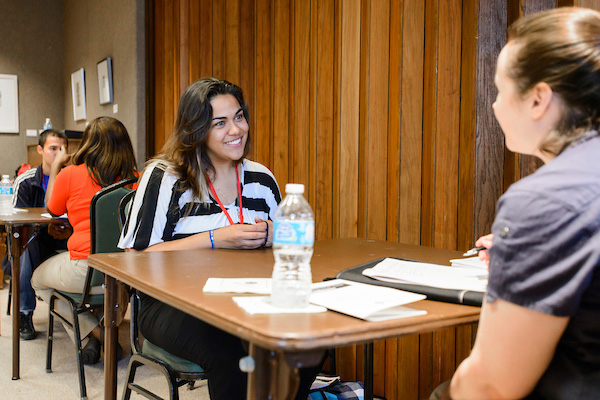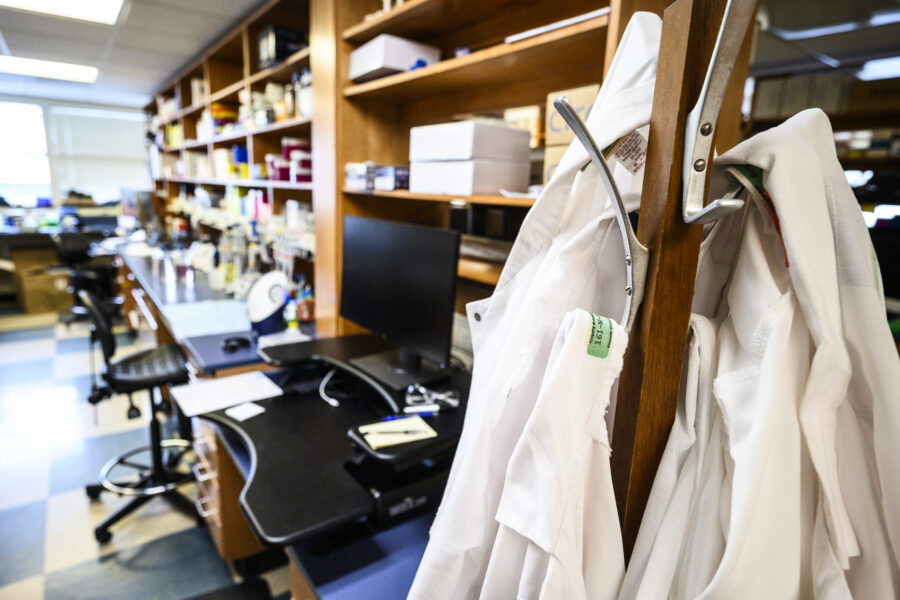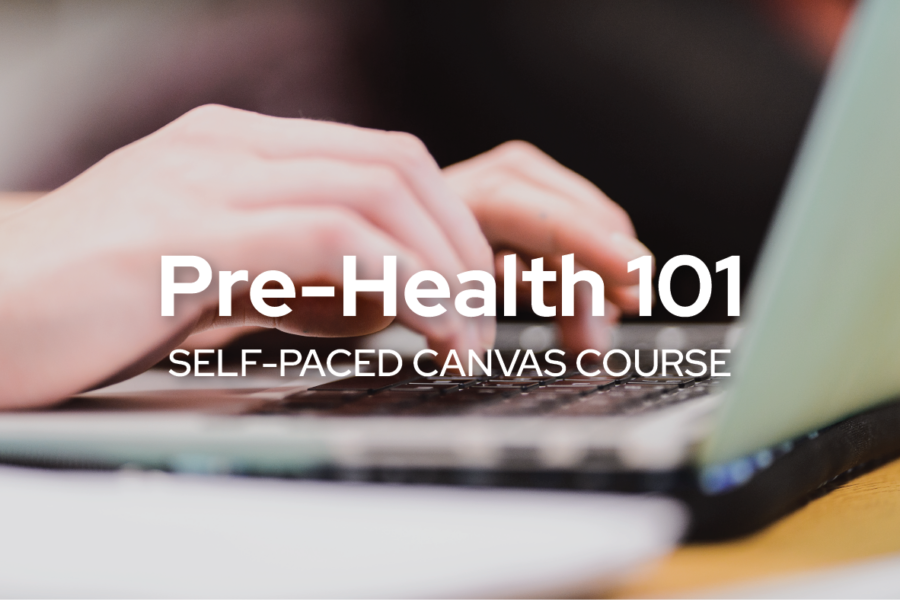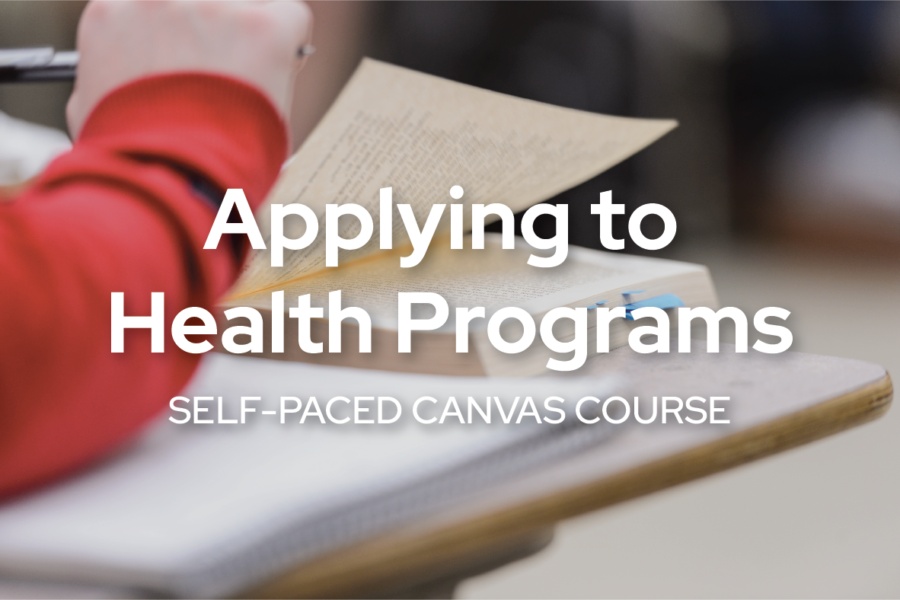About Dentistry
Dentists are healthcare professionals who specialize in diagnosis, prevention, and treatment of conditions related to oral health.
They may practice after attending an accredited dental program and completing a residency and board exams. Dental programs are 4 year graduate degree programs where you learn the fundamentals of oral diseases and conditions, and residency is a post-graduate training process which may be 3-7 years depending on the field.
Most dentists work with patients full-time, however others also teach, engage in research, work in administration, and contribute to healthcare policy.
Many aspiring dentists elect courses in business because dentistry is a field where many professionals own their own practice or create a limited liability corporation with other dentists.
DDS/PhD
Combining a Ph.D. with a DDS. degree prepares students for careers in academic dentistry, such as a dental school professor or biomedical researcher. Adding a Ph.D. generally adds three to four years to a student’s dental school program; thus, you finish after seven or eight years rather than four. You can then choose to go on to complete a specialty in your area of research.
Explore Your Interest in Dentistry
Shadowing & Informational Interviews
An excellent way to explore your interest in dentistry is by observing providers. Shadowing dentists shows you what their day is like and how they work with patients. Conduct informational interviews with providers and ask them about how dentistry has changed since the start of their practice.
Jobs
Getting a job in a dental office is a great way to learn about the practical aspects of the field and can be a stepping stone to other support roles in the practice. Confirm that this work is something you enjoy!
Volunteering
Dental programs look for applicants who demonstrate a sustained commitment to serving others. Learn more about opportunities to volunteer in clinical and non-clinical settings.
Preparing for Dental School
Dental schools use a process called holistic review to weigh personal factors, academic preparation, and professional experience when reviewing an applicant’s “readiness” for dentistry. Put together, these create a picture of you as a whole person.
In addition to having a clear motivation for the field,completing required coursework, experience in clinical and community settings, participating in research, hobbies and interests, and completing the DAT are common admissions factors for dental schools.
Requirements vary from school to school, so it’s always necessary to consult program websites. Pre-requisite courses may include:
Dental School Required Coursework
| Topic | Credits/Semesters | UW-Madison Courses | Is AP Accepted? |
|---|---|---|---|
| Biology | 8-10 credits or 2 semesters Usually labs are required. | Choose one of the following sequences: Zoology 101-102 and an additional bioscience course with lab such as Botany 130, Anat&Phy 335/435, OR Anat&Phy 337 AND 338) Biology 151-152 Biocore 381-382 AND 383-384 satisfies Intro to Bio requirements *Biocore: Students must apply to enroll in Biocore. For more information, visit the Biocore Website | If you have AP credit for Biology, plan to enroll in additional advanced Biology (see Advanced Biology section below) once you've finished your intro Biology sequence. |
| General Chemistry | 8-10 credits or 2 semesters Usually labs are required. | Choose one of the following sequences: Chemistry 103-104 Chemistry 109* Chem 115-116 (intended for Chemistry majors) *Schools may accept Chem 109 as equivalent to two semesters of inorganic chemistry; some may ask for a letter from the UW-Madison Chemistry Department describing the condensed nature of Chem 109. See Pre-Health Advising for more information if you have taken Chem 109 | Schools may accept AP credit for Chem 103. It is best to check the policy of the school. |
| Organic Chemistry | 6-8 credits or 2 semesters Usually labs are required. Some schools will accept 1 semester of Organic Chemistry with 1 semester of Biochemistry. | Chem 343 Introductory Organic Chemistry Chem 345 Intermediate Organic Chemistry Chem 344 Introductory Organic Chemistry Lab | |
| Physics | 8-10 Credits or 2 semesters Usually labs are required. | Choose one of the following sequences: Physics 103-104 (algebra-based) Physics 201-202 (calculus-based; recommended for Engineering majors) Physics 207-208 (calculus-based; recommended for Life Science majors) EMA 201 + Physics 202 + BME 315 (for BME majors) Physics 247/248/249 (for Physics majors) * If physics is required for your major, select the sequence recommended by your major. If physics is not required by your major, physics 103-104 is an appropriate choice | Most schools will accept AP credit for at least one physics course. |
| Math/Calculus | 3-5 credits or 1 semester | Choose one of the following: Math 171-217 Math 211 Math 221 | Very school dependent! Note, not all programs require calculus. |
| Biochemistry | Some schools require 3 credits or 1 semester. | Choose one of the following courses: Biochemistry 501 Biochemistry 507-508 (intended for Biochem majors) | |
| Social Science | This varies widely across programs from courses being "recommended" up to 24 credits. | If you have AP credit for Social Science, you should enroll in additional Social Sciences course(s) in college. | |
| Humanities | Plan on taking 6 credits of English. | Learn more: English Requirements for Health Programs | If you have AP English, you can take more interesting English classes. |
| Statistics | 3 credits or 1 semester | Statistics 301 - Introduction to Statistics. Excellent choice for students with no prior knowledge of statistics and no experience coding. Statistics 371 - Introductory Applied Statistics for Life Sciences. Excellent choice for students who have AP credit for Stats 301 and wish to take a math/statistics course at the college level. This course teaches coding in "R." Statistics 240 - Data Science Modeling. Excellent choice for students who have AP credit for Stats 301 and wish to take a math/statistics course at the college level. This course teaches coding in "R" and may be paired with Stats 340 for a deeper understanding of handling and analyzing data. Introductory statistics in your department - Most schools accept introductory statistics from your major (Psych, Soc, Engineering, Business etc.), but check requirements! | Schools are more willing to accept AP stats IF you have at least one math class at the college level |
| Advanced Biology | Requirements vary depending on the program | Anat/Phys 337 Anat/Phys 335 or 435 Microbiology 303-304 |
Working or volunteering in dental clinics and other healthcare settings gives you a chance to work with patients and healthcare teams. Experience like this is extremely valuable for pre-health students. Most dental schools require 40-80 hours of shadowing, which is easier to do if you are working in a dental clinic.
Dental programs look for applicants who demonstrate a sustained commitment to serving others in healthcare and community settings. Learn more about service opportunities by visiting our Volunteering page and choose opportunities and organizations aligned with your interests!
Research is an important way to develop skills that help you hone your capacity to learn and begin to contribute to the generation of new knowledge in fields of inquiry. Working in a research lab also gives you the opportunity to cultivate relationships with faculty who can serve as letter writers when you apply to a health professions program.
CPHA is here to help with the DAT! Enroll in CPHA’s Applying to Health Professions self-paced course to learn more about the DAT.
What is the DAT?
- Natural Science (100) includes (40) questions about biology, (30) questions about general chemistry, and (30) questions about organic chemistry.
- The Perceptual Ability Test (90 items) consists of six subtests that assess your ability to perceive dimensions and mentally manipulate objects in space. This includes, for example, the ability to differentiate among angles, or imagine how three-dimensional objects appear when viewed from different angles.
- Reading Comprehension (50 items) contains three reading passages on various scientific topics.
- Quantitative Reasoning (40 items) includes algebra, data analysis, quantitative comparison, probability, statistics, and math word problems.
DAT Exam Overview
| Section | Number of Questions | Time Allotted |
|---|---|---|
| Optional Tutorial | 10 minutes | |
| Section 1: Survey of Natural Sciences | 100 | 90 minutes |
| Section 2: Perceptual Ability Test | 90 | 60 minutes |
| Optional Break | 30 minutes | |
| Section 3: Reading Comprehension | 50 | 60 minutes |
| Section 4: Quantitative Reasoning | 40 | 45 minutes |
| Optional Survey | 15 minutes | |
| Total Content Time | 4 hours, 20 minutes | |
| Total Test Time | 5 hours, 15 minutes |
Before the DAT: Recommended Coursework
The DAT is a content based exam meaning you need certain courses before taking it. The courses you should complete before taking the DAT include:
Pre-DAT Coursework
| Subject | Course Options at UW-Madison |
|---|---|
| Introductory Biology | Zoo 101 & additional intro bio such as Botany 130 Bio 151 & Bio 152 Biocore 381 & 383 |
| General Chemistry | Chem 103-104 Chem 109 Chem 115-116 |
| Organic Chemistry | Chem 343 & 345 *Chem 344 lab is not required, but helpful for the DAT |
| Biochemistry | Biochem 501 Biochem 507-508 |
| Helpful courses - NOT REQUIRED You might take one of these to strengthen your knowledge in an area | Introductory Statistics Math through pre-calculus Physiology 335 Genetics 466 3-D Art or modeling |
DAT Timelines
After completing the DAT, you get an unofficial score and you will receive an official score within a month. For students who are applying as juniors, many students take the exam during the summer of junior year. If you need to complete coursework, take the DAT by April of your junior year since this allows you to receive your score before you submit your application. The DAT is offered year-round at Prometric testing sites across the country so finding a test date typically is not a problem.
If you apply as a senior or later (and take a gap year), many students prepare for the DAT over summer of their junior year and take it in August.
Studying for the DAT
There isn’t one “right” way to do well on the DAT, but people who are successful do these things:
- Assess yourself! You need to be honest with yourself about:
- Your attention span and the breaks you need
- Your test stress – you will need longer to prepare if you have high test stress
- The types of resources that work for you. It’s okay to try new study techniques and tools, but you cannot use all of them. If you convince yourself that you must complete everything in one section before you can move on, you will not make progress.
- Carve out regular time to study. You must build this into your schedule. If you study during the regular semester, treat the DAT like a difficult 3 credit class and block time for it like class!
- If you have HIGH test stress, carve out 16 hours/week over 20-24 weeks
- If you have LOW test stress (exams are your superpower!), carve out 16 hrs/week over 8-10 weeks
- If you have NORMAL test stress, carve out 16 hrs/week over 16 weeks
- You might take a course if you know you need the structure of a course and want some tutoring that often comes with it. However, you do not need a course to do well on the DAT if you can structure your time.
- Practice reading online so you get faster at reading passages; practice math word problems
- Take practice exams! Taking a practice exam before you start studying shows you your strengths and weaknesses and allows you to prioritize content.
- The module “Prepare for the DAT” on “Applying to Health Professions” has more information on study plans, resources, and tips. Enroll in CPHA’s “Applying to Health Professions” course – it’s free!
Application Process
Dental schools use a central application called AADSAS, similar to the Common App, to collect biographical information, academic information, experience, and letters of recommendation in one place for schools to review. Applications open in May and it is important to submit by early June since many schools fill their seats on a rolling basis.
Most schools give you a chance to submit additional essays that are specific to their school called secondary essays. These essays are a chance to “speak” directly to a school about your interest in their program.
Interviews for dental programs can begin as early as August and go through December. In February and March, you can attend second-look weekends if you have been offered a spot at a school. Schools (and applicants) finalize their decisions in March/April, and you begin dental school in July or August. The entire application process takes a full year!
Related CPHA Canvas Courses
Enroll in Pre-Health 101
Our most important advising resource for first year students is Pre-Health 101, our online orientation on Canvas. It provides an overview of pre-health classes, activities, application timelines, and more.
Enroll in Applying to Health Programs
CPHA runs a Canvas course called Applying to Health Programs, a non-credit course designed to help you with the process of applying to dental programs. In this course, you'll learn about writing essays, school selection, paying for dental school, interviews, managing waitlists and more.
Career Resources
American Dental Association (ADA)
The American Dental Association (ADA) represents dentists across the country and engages in a variety of efforts to advance oral health. In addition to its advocacy, research, and educational efforts, it also certifies oral hygiene products and engages in philanthropic work through its foundation.
American Dental Education Association (ADEA)
The American Dental Education Association (ADEA) represents all of the American and Canadian dental schools as well as a variety of allied programs. It works to support dental education, research, and professional development, as well as improve oral healthcare for the general public. The ADEA also manages all of the dental common application systems, including the AADSAS, PASS, DHCAS, and CAAPID.




